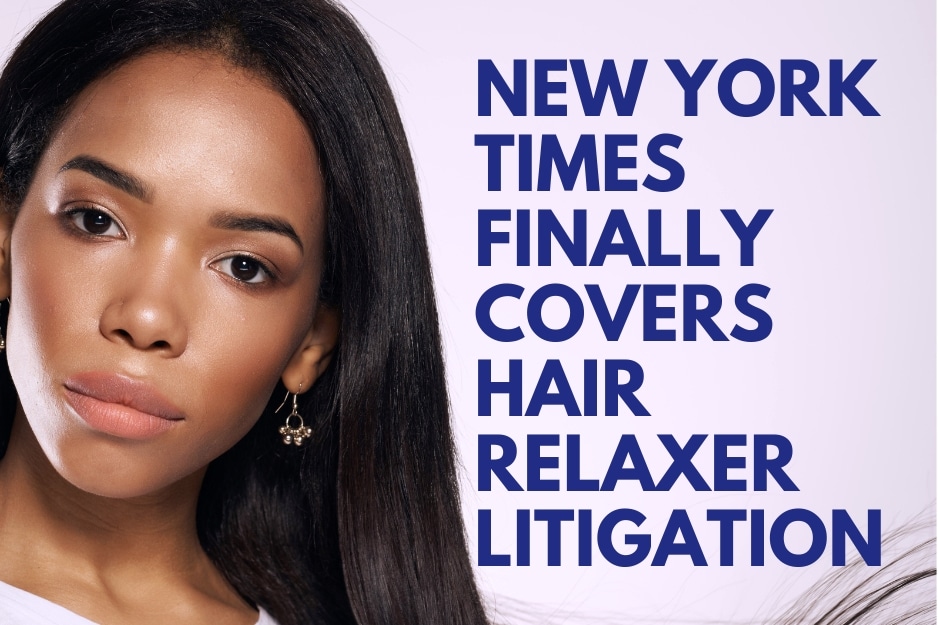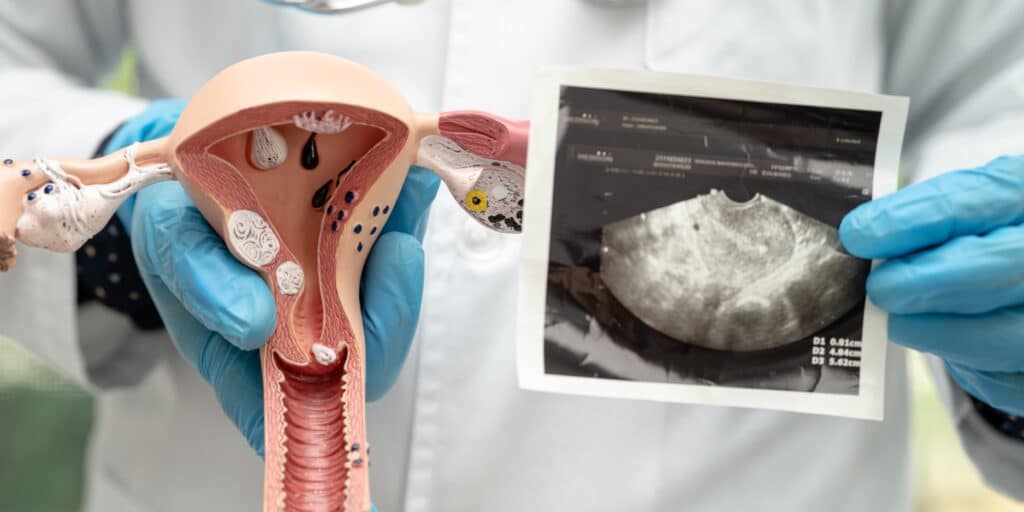
New York Times Finally Covers Hair Relaxer Litigation
After 8,000 Hair Relaxer Lawsuits Filed, Mainstream Media Pay Attention to Cancer Risk

Earlier this month, on June 13, 2024, New York Times Magazine contributing writer Linda Villarosa published “The Disturbing Truth About Hair Relaxers.” Her expansive 6,300-word article was the ripe fruit born from over a year of research about hair relaxer lawsuits.
She interviewed dozens of scientists, government officials, legal experts, and, most importantly, hair relaxer users. Her findings, while shocking to some, were no surprise to us here at The Yost Legal Group.
We have been covering the hair relaxer litigation for two years. Unfortunately, we are all too familiar with the dangers, cancers, and deaths caused by chemical hair straighteners.
The sub-head continues: “They’ve been linked to reproductive disorders and cancers. Why are they still being marketed so aggressively to Black women?”
The easy answer is “Money.” Cosmetics companies like Avlon, L’Oréal, and Revlon have made hundreds of billions of dollars on the heads of Black women without any regard for the effects upon people’s lives.
Hair Straighteners Linked to Uterine Cancer in Black Women
Women who used hair straighteners (mostly Black) were 2.5 times more likely to develop uterine cancer. Black women are more than twice as likely to die from uterine cancer than other racial and ethnic groups studied in 2022 by The Journal of the American Medical Association Oncology.
All peer-reviewed studies we have seen show that chemical hair relaxers and straighteners are carcinogenic, yet cosmetics companies continue to market and sell them. It is time to hold them accountable.
Have you been diagnosed with endometrial cancer (not to be confused with endometriosis), non-serous ovarian cancer, or uterine cancer? Have you used chemical hair relaxers or chemical hair straighteners regularly for years? Contact The Yost Legal Group today at 410-659-6800.
Our lawyers for personal injury will help you understand your rights to file a hair relaxer lawsuit. If you used a dark and lovely relaxer and were diagnosed with any of these cancers, we can file a dark and lovely lawsuit on your behalf.
There is a direct connection between hair relaxers and cancer. Click here for hair relaxer lawsuit update information.
Urgent Warning for Black Women Using Hair Straighteners
If you have never used chemical hair relaxers or lived with someone who did, it might be easy to underestimate how prevalent they are among Black women.
According to a 2019 study published by the Journal of Exposure Science & Environmental Epidemiology (and cited in Villarosa’s New York Times Magazine article), 89% of Black women studied reported having used chemical hair relaxers/straighteners at least once.
In 2011, the United States hair-relaxer market generated $71 million just from sales to salons and other professionals. That revenue dropped to $30 million by 2021. However, those figures do not account for the many products sold off-the-shelf directly to consumers.
If you have been diagnosed with uterine cancer and have used hair relaxers regularly, you should consider filing a product liability lawsuit. The toxic chemicals in chemical hair straightening products increase your risk of cancer.
Although the harmful chemicals in these products were known to be carcinogenic, manufacturers continued to use them in their hair products. Multiple studies show the risk of developing uterine cancer with prolonged use of hair straighteners or relaxer products.
Hold Cosmetics Companies Accountable for Carcinogenic Hair Products
Hair Relaxer Brands Linked to Reproductive-Organ Cancers:
· African Pride
· Avlon
· Bantu
· Carson
· Dark and Lovely
· Just for Me
· L’Oréal
· ORS Olive Oil
· Revlon
· Strength of Nature
Hair-straightening products have been on the market since the 1950s. In many families, brand loyalty has become a tradition. Mothers passed their products onto their daughters, who would eventually pass the products onto their own daughters, and so on and so forth.
Some women have decades of chemical hair relaxer use. The blatant disregard for the health and well-being of women of color by these manufacturers is evident. Now, a light is shining on the truth.
Higher Uterine Cancer Risk Linked to Hair Straightening Chemicals, NIH Study Reveals
A recent study from the National Institutes of Health (NIH) has found that women who use chemical hair straightening products face a higher risk of developing uterine cancer than those who do not use these products.
The research, which drew data from 33,497 U.S. women aged 35-74 participating in the Sister Study, highlighted an increased risk, particularly among Black women, who reportedly use these products more frequently.
According to the findings, women who used hair straighteners more than four times in the previous year were more than twice as likely to develop uterine cancer compared to those who did not use the products.
Notably, the study did not find any associations between uterine cancer and other hair products such as dyes, bleach, highlights, or perms.
Key Findings from the Study:
- Women who never used hair straighteners had a 1.64% chance of developing uterine cancer by age 70.
- Frequent users (more than four times a year) faced a risk that increased to 4.05%.
- During nearly 11 years of follow-up, 378 uterine cancer cases were diagnosed among the participants.
Dr. Alexandra White, head of the NIEHS Environment and Cancer Epidemiology group and the study’s lead author, emphasized the significance of these findings. “This doubling rate is concerning. However, it is important to put this information into context—uterine cancer is a relatively rare type of cancer.”
Despite accounting for about 3% of all new cancer cases, uterine cancer remains the most common cancer of the female reproductive system, with an estimated 65,950 new cases in 2022.
Alarmingly, studies indicate that the incidence rates of uterine cancer have been rising in the United States, especially among Black women.
This study underscores the importance of further research and awareness about the potential risks associated with chemical hair straightening products, particularly within communities that use these products more frequently.
Holding Cosmetics Companies Accountable for Product Safety
As the awareness of the potential risks associated with chemical hair relaxers continues to grow, it is crucial for individuals, especially Black women, to educate themselves about the products they use.
Seeking alternative hair straightening methods that do not contain harmful chemicals can help reduce the risk of developing serious health issues. Additionally, holding cosmetics companies accountable for the safety of their products is essential in ensuring the well-being of consumers.
By staying informed and advocating for safer hair care options, individuals can protect themselves and their loved ones from the dangers linked to chemical hair relaxers.
This prevalence over many decades greatly explains the 8,000+ cases that people have filed so far. In the Hair Relaxers Marketing, Sales Practices, and Products Liability Litigation (MDL-3060) in the United States Judicial Panel of Multidistrict Litigation docket.
The Hidden Dangers of Hair Relaxers for Black Women Exposed
It is nice to see a mainstream media organization like The New York Times finally give this cause the attention it deserves. Hair products that cause cancer should be removed from the market.
Black women have been suffering from preventable endometrial, non-serous ovarian, and uterine cancers likely caused by their chemical hair relaxers for far too long without proper recognition.
If you used chemical hair relaxers or chemical hair straighteners regularly and were diagnosed with endometrial cancer (not to be confused with endometriosis), non-serous ovarian cancer, or uterine cancer, call The Yost Legal Group.
We will file a hair relaxer lawsuit to seek financial compensation for you and your family. Our attorneys for personal injury will fight to seek a hair relaxer settlement.
Our experienced hair relaxer lawyers will work to help you get the justice you deserve. Call or text us at 410-659-6800 for a free consultation.

